Play it Food Safe campaign
Most people think they handle and prepare food safely, yet statistics show the majority of food poisoning occurs in the home.
Food poisoning can be very serious, particularly for vulnerable sections of the community such as the elderly and children. However, preventing food poisoning is simple if foods are handled and stored correctly.
In recent years, Western Australia has seen a rise in Salmonella cases, which led to the development of the Foodborne Illness Reduction Strategy 2017-2021.
A public campaign was a key element of the strategy, which aims to reduce the number of foodborne illness cases by changing behaviour and culture around food preparation and storage.
This vibrant marketing campaign was developed to educate people who prepare and handle food at home, particularly behaviours around eggs, chicken and storing of perishable foods.
It emphasises that preparing meals at home is nutritious and enjoyable, and preventing food poisoning is simple when a few key behaviours are followed.
Objectives
- Raise awareness that the majority of food poisoning cases occur at home, not at commercial or retail food outlets.
- Reduce the number of foodborne illness cases (food poisoning) in Western Australia.
- Educate people about the correct ways to prepare, handle and store food.
Key messages
- The majority of food poisoning happens at home. Make sure you Clean, Separate, Cook and Chill to prevent food poisoning.
- Never wash raw chicken as this spreads bacteria around your kitchen that can make you sick.
- Don’t let raw chicken juice contaminate other foods. Always wrap your chicken before storing it.
- Separate raw chicken, meat and eggs from ready‑to‑eat food, like salads and fruit to prevent cross‑contamination.
- Never wash raw eggs. Avoid bacteria getting inside the egg through the porous shell.
- Always cook eggs until the yolk and whites are firm. If you use raw eggs in foods such as desserts and mayonnaise, refrigerate immediately.
- Throw out food that has been left out of the fridge for more than 4 hours.
- Put cooked food into the fridge as soon as it finishes steaming.
- Avoid food being stored in the temperature danger zone (5°C to 60°C) as bacteria that cause food poisoning grows best at these temperatures.
Partnerships to promote the campaign
Many organisations can help to promote the campaign materials including:
- Local government environmental health and communication teams
- Teaching and/or training institutions or not for profit organisations that focus on food, nutrition and food safety
- General practitioners and nurses
- Food businesses, particularly businesses that sell food for cooking at home
Queries about participating in promoting the food safety messages can be emailed to foodsafety@health.wa.gov.au
Co-badging
Any request for co-badging materials must be directed to the Department of Health’s Communications Directorate for assessment and review.
Promotional materials must be approved by the Communication Directorate before release to ensure the logo is only used to endorse events that are aligned with the values of the Department of Health.
Email: communications@health.wa.gov.au
Target audience
- People responsible for household food purchases and meal preparation in Western Australia.
Timing
- Cases of food poisoning peak in summer from November through to the end of February. Campaign messaging will coincide with the summer season.
Campaign materials
Please download and share these materials to help us reach our target audience and achieve our campaign objectives.
Contact us if you need alternative formats and let us know how you are using these materials.
TV
Video
Posters
Flyers
Order posters and flyers from the Department of Health online ordering system (external site), search “environmental health”.
Banners
Play it Food Safe banner (1.5MB PDF)
Clean, Separate, Cook, Chill banner (1.5MB PDF)
Digtital Assets
Digital assets and their assoiciated messages are available in the Play it Food Safe digital assets guide (PDF 247KB).
GIFs
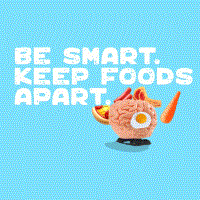

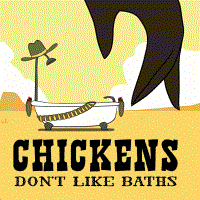
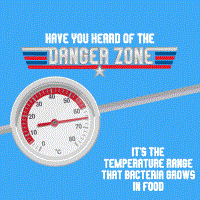
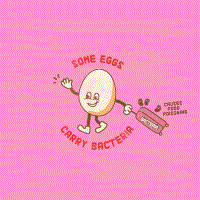
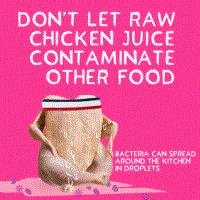
Static images:
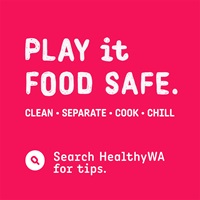

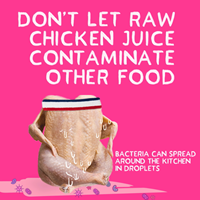


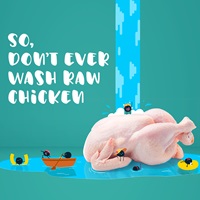
Produced by
Environmental Health Directorate